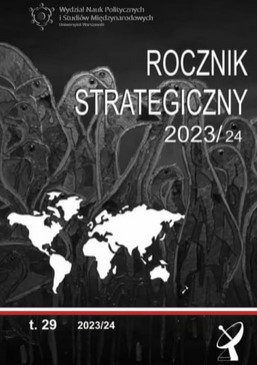Dynamika globalnego i europejskiego bezpieczeństwa energetycznego w warunkach sankcji i kryzysu klimatycznego
Dynamics of global and European energy security in the face of sanctions and climate crisis
Author(s): Kamila PronińskaSubject(s): Supranational / Global Economy, Energy and Environmental Studies, Environmental and Energy policy, International relations/trade, Military policy, Financial Markets, Peace and Conflict Studies, Russian Aggression against Ukraine
Published by: Wydawnictwo Naukowe Scholar Sp. z o.o.
Keywords: Energy security; oil price cap; OPEC+; Russia; sanctions; COP28; energy transition; renewable energy; CO2 emissions; oil market; gas market; oil prices; EU energy policy; climate policy;
Summary/Abstract: A year of uncertainty caused by Russian aggression against Ukraine and the sub-sequent imposition of sanctions on Russian oil by Western countries resulted, as expected, in high volatility of oil and gas prices. At the same time, the unprecedented scale of IEA countries’ actions to mitigate the sudden increase in oil prices, and the EU’s policy measures to prevent an even greater energy crisis in Europe brought effects. This chapter explores the changes in the global and European energy security landscape in 2023 and evaluates some of the measures which were taken in response to Russia’s full-scale invasion on Ukraine. The first part focuses on how the three major factors – Western sanctions on Russian oil, the growing supply of oil from strategic reserves and non- OPEC+ production, and OPEC+ production cuts – influenced the global oil market. Among others, it addresses the problem of violations of the Western sanction regime, including the oil price cap, by various actors. The second part provides an analysis of the contemporary trends in the European energy market. It discusses the energy transition of the EU, which has started to be perceived not only as an answer to the global climate crisis but also as a response to geopolitical challenges and the energy crisis. In this context, it also discusses the changes in the perception of natural gas as a transitional fuel, the problem of weaponi-zation of gas supplies and gas infrastructure in 2023, and EU’s new energy policy regulations, which put investments in RES at the centre of attention. The last part presents and critically analyzes some of the main findings of the climate summit COP28 and the UEA Consensus.
Journal: Rocznik Strategiczny
- Issue Year: 2024
- Issue No: 29
- Page Range: 148-165
- Page Count: 18
- Language: English

